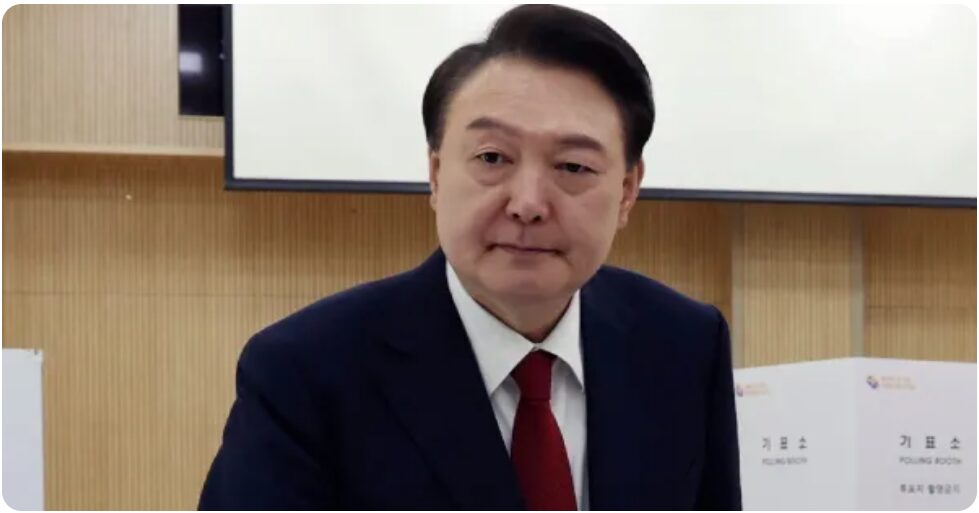In the complete turn of events that sent shock waves through South Korea’s political landscape, an impulsive declaration by President Yoon Suk Yeol of martial law on Tuesday night has exposed the fragile state of democratic institutions in the country and the deep political divisions that plague the nation. What began as a late-night television address quickly unravelled into a six-hour political drama that brought the country to the brink of a constitutional crisis.
Yoon’s move was unprecedented in modern South Korean history. Since the country’s democratization in 1987, martial law has become a relic of a darker past. It is the first time in history since the era of military dictatorship that was experienced in 1980, and Yoon effectively invoked martial law to suspend civil liberties, ban political activities, and even bring media and parliamentary operations under military control.
The justification was as dramatic as his actions. The president termed the opposition “anti-state forces” that were threatening democracy and national stability. In a televised address, Yoon painted a dire picture of a nation on the verge of collapse: “I need to rebuild and protect the free Republic of Korea.” The reality appeared much more mundane: a political gridlock over the national budget and simmering tensions between Yoon’s conservative party and the opposition.
This dramatic event in context needs to be put in perspective. Yoon is plagued by plummeting popularity, polls show that his approval ratings come close to a paltry 19%. His administration has been saddled with multiple scandals, including an allegation of influence peddling against his wife. She has been accused of accepting luxury gifts and manipulating stock markets. The April parliamentary elections had already dealt a considerable blow to Yoon’s party, as the opposition secured a landslide victory and won 175 of the 300 seats.
What makes this event highly alarming is how fast the whole thing happened and at how fast it was lifted. Within six hours upon the declaration of martial law, the National Assembly voted in an unprecedented manner: Despite increased security in order to prevent law maker from getting into parliament, 190 lawmakers amnaged to enter and rejected that martial law and demanded lifting it right away. Even members of Yoon’s same party participated in this bipartisan response towards his actions.
The international community was relieved and concerned at the same time as the events were unfolded. The United States praised the swift resolution of events, while Russia termed it “alarming.” The situation was closely watched in China and other European countries, which indicates that a stable South Korea has large geopolitical implications.
Perhaps most telling was the response from South Korea’s political establishment. Even members of Yoon’s People Power Party criticized the move, with party leader Han Dong-hoon calling it a “wrong” step. He also asked whole cabinet to resign today. The opposition went further, with leader Lee Jae-Myung dramatically describing the scenario as tanks and soldiers taking over the country.
The constitutional implications are profound. South Korea’s constitution allows for martial law during wartime or national emergencies as outlined in Article 77 of the constitution., but legal experts and former diplomats, including ex-Foreign Minister Kang Kyung-Wha, argued that no such conditions existed. Kang described the move as “unconstitutional” and an “aberration,” noting that Yoon failed to gain proper cabinet approval beyond the Defense Minister.
Equally swift and effective in their reaction were labour unions and civil society. In response to this anti-democratic decision, South Korea’s main labour union, the Korean Confederation of Trade Unions declared a strike to go on indefiniteness. This pace of mobilization shows very deep-rooted democratic attitudes in South Korean society with an aversion to risking a drift towards authoritarianist practices.
For Yoon, the penalties are severe. His political credibility has been severely undermined. The main opposition Democratic Party has already announced its plans to introduce an impeachment motion, which could eventually remove him from office. Although impeachment requires a two-thirds majority and would thus need some support from Yoon’s own party, the political landscape has been irrevocably altered.
The implications are broader and transcend the domain of domestic politics. Geopolitical analysts today are questioning the shift of regional dynamics. With the grip of Yoon on power weakening and the opposition sure to gain more ground, there is a possibility that South Korea’s foreign policy may change significantly, at least with regard to relationships with China and North Korea.
This is a harsh reminder of how vulnerable democratic institutions are. An impulsive decision can pose a threat to decades of democratic progress. It points out the importance of robust democratic checks and balances and the critical role that institutions like the National Assembly play in upholding democratic principles.
The night of December 3rd will be etched in the memories of South Koreans as a moment when democracy proved resilient. The swift and unified response from lawmakers, civil society, and the public demonstrated that the country’s commitment to democratic values remains unshaken, even in the face of a presidential attempt to undermine those very principles.
The dust is settling, but one thing is clear: President Yoon’s midnight gambit has spectacularly failed itself and may accelerate his own political demise as it reinforces the strength of South Korea’s democratic institutions. In nutshell, one can say that South Korea is no longer a liberal democracy.







